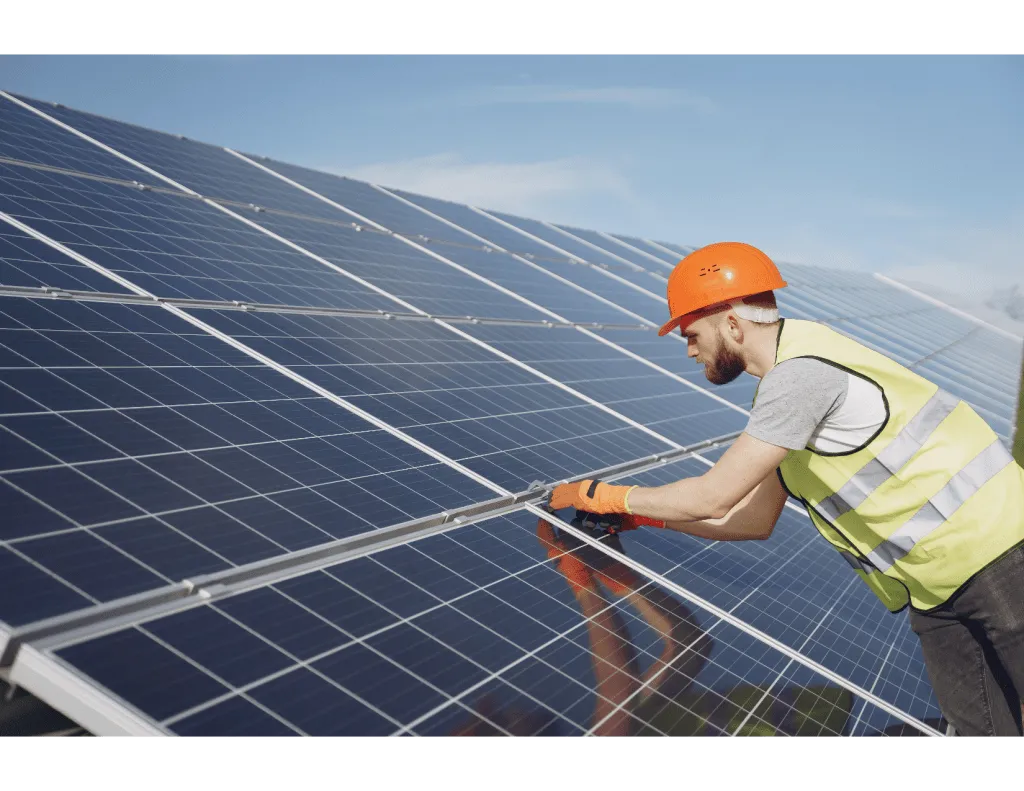As concerns about environmental sustainability and rising energy costs continue to grow, more homeowners and businesses are turning to solar panels as a viable solution for their energy needs. Solar panels convert sunlight into electricity, offering a renewable energy source that can reduce reliance on traditional power grids. Whether you’re considering solar panels for your home or business from North Valley Solar Power of Fairfield, understanding the long-term benefits can help you make an informed decision. We’ll look at the financial, environmental, and operational advantages of installing solar panels.
The Growing Appeal of Solar Energy
- Reducing Energy Bills
One of the most immediate benefits of installing solar panels is the potential to reduce or even significantly eliminate your monthly electricity bills. Solar panels allow you to generate your electricity from sunlight, which means you rely less on power from the grid. The more electricity your solar panels produce, the less you need to purchase from your utility company. In some cases, solar energy systems generate more electricity than a household or business consumes. Allowing the excess energy to be sent back to the grid.
This process, known as net metering, can result in credits on your utility bill and further decrease energy costs. Over time, these savings can offset the initial cost of installing the solar panels, making it a cost-effective solution in the long run.
- Environmental Impact
Solar panels provide a clean, renewable energy source, significantly reducing the environmental impact associated with traditional electricity generation. Most electricity is produce using fossil fuels like coal and natural gas. Which emit greenhouse gases and contribute to climate change. In contrast, solar energy production generates no harmful emissions or pollutants, helping to reduce the carbon footprint of households and businesses.
By installing solar panels, you contribute to the broader effort to combat climate change by relying on renewable energy. This also helps decrease the overall demand for non-renewable resources, supporting a global shift toward more sustainable energy practices.
- Increasing Property Value
Solar panels can also positively impact the value of your property. Homes and businesses equipped with solar energy systems are often more attractive to buyers because they offer the potential for lower energy costs and long-term savings. In many cases, potential buyers are willing to pay a premium for properties with installed solar panels, knowing that they are investing in a more sustainable and cost-efficient energy source.
Moreover, as solar technology continues to improve and become more widely adopted, the demand for properties with solar installations will likely increase. Installing solar panels can be a forward-thinking decision that saves money and adds resale value to your home or business.
- Energy Independence and Grid Resilience
Another significant benefit of solar panels is the increased energy independence they offer. By generating electricity, you reduce reliance on traditional energy providers, protecting yourself from fluctuating energy prices and potential power outages. This is particularly beneficial in areas prone to energy instability or regions where energy costs are rising rapidly.
For added security, solar panel systems can be paired with battery storage solutions that store excess energy generated during the day for use at night or during periods of low sunlight. This setup provides greater control over your energy use and offers a reliable backup power source in emergencies.
- Low Maintenance and Durability
Solar panels are known for their durability and require very little maintenance over their lifespan. Most come with 20 to 25-year warranties, ensuring reliable performance for decades. The only regular maintenance required is cleaning the panels to ensure they operate at maximum efficiency. Which can usually be done once or twice a year, depending on your location and the level of debris buildup.
Solar panels have no moving parts, so there is minimal mechanical failure risk. However, the inverters, which convert solar energy into usable electricity, may need to be replace after a certain period. This is a relatively minor cost compare to the overall benefits of solar panel installation.
- Government Incentives and Tax Benefits
Many governments offer financial incentives and tax benefits to encourage the adoption of renewable energy solutions like solar panels. These incentives can significantly reduce the upfront installation cost, making solar panels more accessible to homeowners and businesses. Some of the most common incentives include tax credits, rebates, and grants that help offset the initial investment.
In addition to federal incentives, many states or local governments offer solar programs that can provide further savings. Taking advantage of these incentives can make installing solar panels more affordable and improve the return on investment.
- Supporting Local Economies and Job Creation
The growth of the solar energy industry has led to an increase in local job opportunities and economic benefits. Installing solar panels contributes to the demand for skilled labor in solar installation, manufacturing, and maintenance. Supporting local solar companies helps create jobs in your community and strengthens the renewable energy sector.
Moreover, as the solar industry expands, it can stabilize energy prices by reducing the demand for non-renewable energy sources. In the long run, this can lead to more affordable energy prices for everyone.
A Smart Long-Term Investment
Installing solar panels offers numerous benefits that go beyond immediate energy savings. From reducing environmental impact and increasing property value to providing energy independence and taking advantage of government incentives, solar panels are a smart long-term investment. As more homeowners and businesses embrace renewable energy, solar panels will play a vital role in shaping a more sustainable future.






